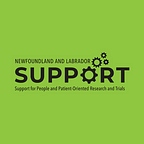Lessons learned from the INVOLVE Conference
By (Lidewij) Eva Vat, Training and Capacity Lead, NL SUPPORT
“Research — the best treatment I’ve ever had.”
During the opening session of the INVOLVE Conference, Simon Stones gave a short talk about the importance of research in modern day medicine, and the journey that he has taken as a result of research. The INVOLVE at 21 Conference was held in Westminster, London on Tuesday 28 November 2017.
During the International session, we — Malori Keller (Saskatchewan Centre for Patient-Oriented Research), Tim Bell (Canadian Institutes of Health Research) and I — presented one national Canadian training approach. We shared the Strategy for Patient-Oriented Research (SPOR) and how we developed and evaluated a course to change the way people do research.
Patient and public involvement is a global social movement
When it comes to involving the public in research, the United Kingdom has a ten-year head start; this is due to the leadership of groups like INVOLVE, a government-funded entity supporting public involvement in the National Health Service (NHS) and health research. But they are not the only players anymore. People from across the world attended INVOLVE at 21: Canada, the United States, Malaysia, Denmark, Australia and many more. We celebrated the progress of public involvement in research and the opportunities ahead.
A day before the conference representatives met in London to lay the foundations for a global network (#globalPPInetwork) dedicated to making research an enterprise done “with or by” patients and the public, rather than “about or for” them. You can more about this International Network in this post by Tessa Richard, published on the British Medical Journal’s Opinion blog.
All audience groups can be involved in health research
It was interesting to hear from children and young adults how they have been involved in health research. One group involved young people with relevant experience who had taken part in a large National Institutes of Health Research-funded evidence synthesis project of mental health interventions for children and young people with long–term conditions. The young people were involved in validating research ideas, confirming appropriate search terms, producing suggestions for search sources, interpreting review findings from a different vantage point, and producing a plain language summary and a podcast for dissemination of key messages. Other groups talked about the involvement of older people with dementia, patient involvement in palliative care research and patients with cancer.
Knowledge translation beyond publications
One session talked about dissemination methods and the role of the public. There was a great talk about an award winning production designed to reach at-risk adolescents to teach them about oral health, and a great example for our theatre pilot in Newfoundland and Labrador. Keep an eye on this blog as more information will follow soon.
Simon Denegri, (former) chair of INVOLVE ended the conference with some closing remarks. He emphasized that we should focus on the shift of power towards patient-oriented research.
“Researchers can’t afford to not include patients in their research.”
He ended with a beautiful — must-read — self-penned poem.
Overall, I felt that our Canadian approach meshed well with the United Kingdom’s, and many parallel approaches and examples of patient engagement exist in Canada. Thanks in part to many of helpful resources developed by INVOLVE. Maybe patient engagement in health research will be the norm in 10 years?
If you weren’t lucky enough to be there, read all about it here #INVOLVEat21. If you’d like to read the conference abstracts, you can find them here.
